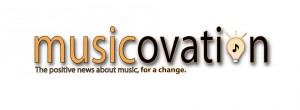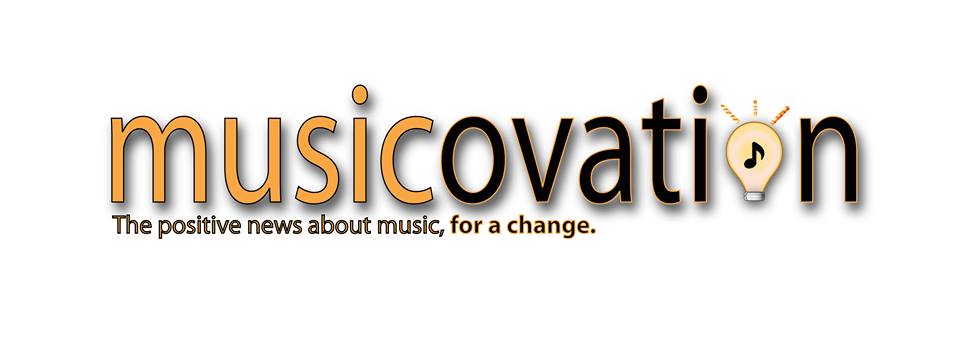We’re Doing All Right
 A year ago last week, I packed a small duffel bag, placed my cello in a secure corner of my Rochester apartment, and walked a short ways to the Rochester Amtrak station to catch the noon train to Boston. The trip was momentous for a couple reasons: for one, it marked my first return to Boston since graduating from NEC nearly two years previously, and for another, it represented the beginning of what was to be an exciting personal project: Musicovation.com.
A year ago last week, I packed a small duffel bag, placed my cello in a secure corner of my Rochester apartment, and walked a short ways to the Rochester Amtrak station to catch the noon train to Boston. The trip was momentous for a couple reasons: for one, it marked my first return to Boston since graduating from NEC nearly two years previously, and for another, it represented the beginning of what was to be an exciting personal project: Musicovation.com.
Regular readers (you do exist, right?) will know all about Musicovation, the website I co-founded with my good friend and colleague, flutist Elizabeth Erenberg, that is dedicated to promoting “the positive news about music, for a change.” Liz and I had been co-editors of NEC’s student-run newspaper together in our college days, and had kept in touch since graduating, following each other’s various musical/entrepreneurial activities on social media. Then, over Thanksgiving weekend 2013, Liz called me to share an intriguing idea she’d had: what if there was a website dedicated to promoting all of the positive things that are going on in the music world, to contrast the pessimistic stories we’re used to (and sick of) hearing? I loved the concept instantly, and enthusiastically agreed to help make it a reality.
Now, five months later, the site’s launch was quickly approaching, and we were meeting in person for the first time in two years to have a “Musicovation retreat” of sorts and create a welcome video to be published directly preceding the launch. We didn’t want the video to solely comprise of the two of us just sitting in Liz’s office, so we decided to film it in various parts of Boston, with each location possessing a subtle relationship to the story we were telling. For example, when I say that “life as a professional musician might seem like an uphill battle,” the video shows me and Liz attempting to climb Bunker Hill with our instruments in hand (in case you didn’t pay attention in U.S. History, Bunker Hill was the site of a significant Revolutionary War battle). Other shots had us at the Boston Commons and Public Gardens, NEC, Boston’s Symphony Hall, the Old North Church, the Christian Science Center, and a scenic overlook in nearby Malden.
Given the number of locations involved, filming took quite a while. We did all of the city shots on Easter Sunday, April 20th, traveling mostly by foot. Although we got most of the footage we needed, the fact that we were literally shooting “on location” did pose some challenges: a persistent wind off the Atlantic threatened the quality of our audio, our endeavor to film at the legendary Old North Church was thwarted by a tour guide in colonial wear, and it took about fifteen takes to get a clear shot of me standing outside Symphony Hall, since we were attempting to film from across Massachusetts Avenue in rush hour on the night before the Boston Marathon. At one point, just when the traffic had finally seemed to subside, a swarm of motorcyclists roared past, doing wheelies and grinding their Harley-Davidsons like there was no tomorrow. But we got it in the end, and triumphantly headed back to Liz’s apartment, albeit with considerable exhaustion and a renewed appreciation for filmmakers everywhere.
Now, one year later, it’s hard to believe how far Musicovation has come. What was twelve months ago a fledgling idea comprising solely of a few Google docs, unedited video footage, and the imaginations of two conservatory grads is now a familiar website with a fastly growing base of followers. With an average of one new video and two new blogs published each week, Musicovation has featured work from a wide variety of musicians and arts advocates, including orchestra musicians, conservatory professors, bloggers, published authors, arts entrepreneurs, and more, all providing examples of the positive and innovative thought that is shaping the future of the music industry. Some of the groups and organizations we’ve featured, and some of the bloggers we’ve had might be familiar to you, while others might be entirely new (mostly because they are!). This diversity is what I find to be one of the most unique and inspiring aspects of Musicovation: musicians and artists of all statures, genres and experiences coming together to participate in an ongoing dialogue and foster a collective vision for the future.
I have written many times on this blog about the pervasive notion that classical music and the music industry as a whole are dead and obsolete–in fact, my very first post from September 2012 was entitled, “Has the Sympocalypse Come? Only If We Think It Has.” Obviously, it’s an issue I’ve thought seriously about for several years now, but running Musicovation for the past ten months (we officially went live on June 21st, 2014) has given me a new and inspiring perspective.
When we first developed the site, we had a good number of groups and individuals in mind that we wanted to feature, but a few months into its existence, it became apparent to us that our initial list was only the tip of the iceberg. It seems that in every city, at every music school, there are smart and savvy musicians and educators recognizing the challenges we face in the modern field, and meeting those challenges with creative and entrepreneurial problem solving.
There is this communal recognition that, yes, we have our problems; but no, they don’t represent the end of the industry; and just because we are trying new things does not mean we are abandoning prized traditions. While this type of thought has always existed and has always had the potential to become a reality, the resources of modern technology have made that reality more attainable than ever before. It is mind-boggling to consider that, a mere ten years ago, the broad fusion of people and ideas represented by Musicovation would have been practically impossible.
In April 2005, YouTube was not yet accessible to the public, practically no one outside of a few Ivy League schools knew what Facebook was, and the only tweets we heard were from the birds in our backyards. Now, with so many ways to connect and share, the internet has become the virtual home of our collective consciousness–and we are proud and privileged to be channeling the musical side of that consciousness on Musicovation.
Of course, there are still many challenges in the music world, particularly for classical music, and I am not one to suggest that everything is hunky-dory. But after working and communicating with the many individuals, organizations, and initiatives we’ve featured on Musicovation this past year, and reflecting on the fact that, as of this writing, over 4700 people have collectively viewed our site nearly 11,000 times since last summer, I have great hope for the future of music and the arts. Our field is not perfect, but I think we’re doing all right.

